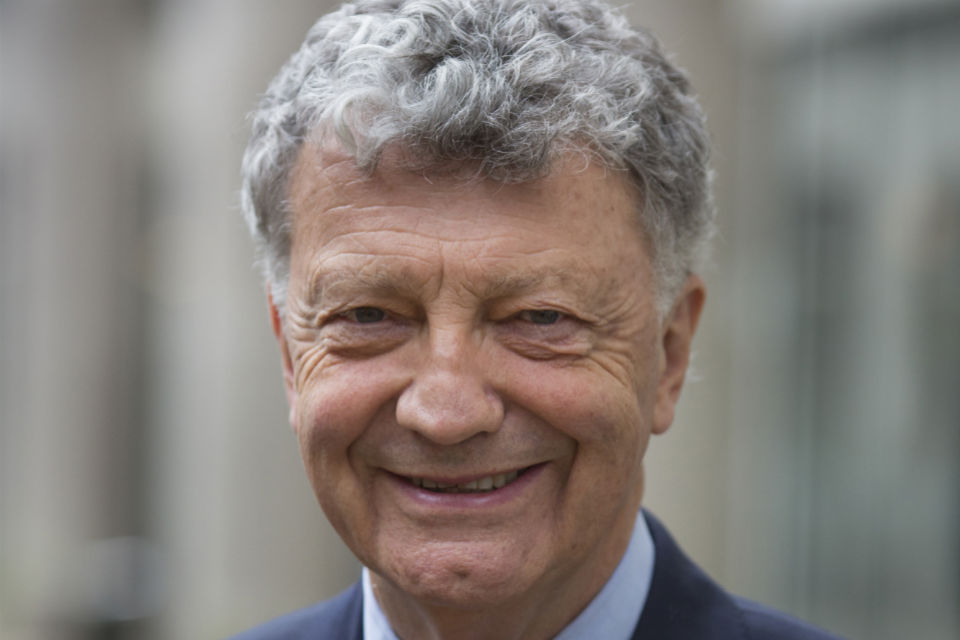William Shawcross opening speech at annual public meeting
William reflects on the Commission's work over the last year and looks to the future.

Good morning,
It is a great pleasure to be here at the Royal Society to open our Annual Public Meeting. We delayed our usual autumn schedule in order to accommodate the much more demanding timetable of the “Senior Cabinet Minister” who, as we mentioned in our invitation, will be giving the Charity Commission Annual Address.
I am sure many of you will already know, having read the weekend’s newspapers - but I am delighted to confirm that this Address will be given by the Prime Minister who will be talking about social policy and the Shared Society, and we expect making some announcements about the vital issue of mental health.
We are honoured that she chose the Charity Commission’s public meeting to give such a significant speech. There could be no better indication of the importance of charities to this country, and of our responsibility as regulator.
This will be my fifth and last year as Chairman of the Charity Commission, a marvellous, vital organization which it has been a huge privilege to lead.
The Commission was created in 1853. Its principal duty now as then is to enhance public trust and confidence in the work of charities, work which adds enormously to the quality of life in this country.
We do this on something of a shoestring. In the last six years our budget has been reduced by almost half in real terms. It’s now just £21 million. With that we regulate 165,000 registered charities with a total income of over £70 billion. Yet our workload in registering and regulating charities has constantly grown.
After I arrived at the end of 2012, I created a new, much more active board, and we then appointed Paula Sussex as our new Chief Executive, with the task of transforming the Commission into an efficient risk-based regulator. We had to bring our systems and processes into the digital age, streamlining low risk work so that we can focus resources on the highest risk areas.
This transformation was greatly assisted by a one-off £8 million investment from the Treasury in 2014. It is nearly complete.
My board also decided that, given our reduced resources, the only way of increasing confidence in the sector was to be a really firm regulator, enforcing compliance in that small minority of cases where there is serious abuse, misconduct or mismanagement.
I hope and believe that this has been an effective strategy.
We now wish to add to our focus on compliance a renewed emphasis on enablement. Enabling trustees to run their charities better is key to public confidence in charity and to the effective use of charitable resources.
Since its beginning in 1853 Commissioners have agitated for more resources and more powers. I have been no exception. Happily, we were able to make the case for new powers strongly and last year Parliament passed the Charities Protection and Social Investment) Act.
The Act gives us significant new powers to deal with those few charities where abuse or serious mismanagement damages the reputation of the entire world of charity. But I stress, these powers will be used only in the most serious cases as Parliament agreed.
I am proud to say the Commission has responded well to most of the great challenges we faced when I joined as Chairman.
For me as Chairman, in my final year, the remaining challenge to which we must respond is that of our finances. I cannot leave the Commission without trying to improve its financial stability.
There is widespread acknowledgement that the commission’s funding does not allow us to meet the growing demands on us or support the future needs of charities.
Asking Charities to cover some of the Commission’s costs would be a big change for the Commission and the charities themselves. This is not an easy conversation and some of you will not welcome it.
But I am convinced that agreeing some form of contribution from charities is the only way to secure adequate long term funding for the Commission, and to develop the key services from which charities benefit. We are committed to consulting widely and publicly on this and I hope and expect to do so very soon.
This year has been one of great uncertainty for charities. Financial, political, and - for the first time since we began recording it - a fall in public confidence in charity.
But the British public remain amazingly generous with their time and their donations, and public confidence in charity can be restored and renewed.
This involves strong governance, bold leadership, and a commitment to transparency and accountability. Charities cannot take their privileged place in society for granted. They must show they deserve it.
As regulator we will play our part and I call on you all to play yours.